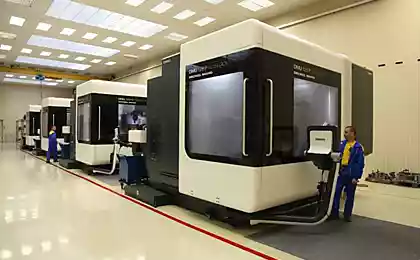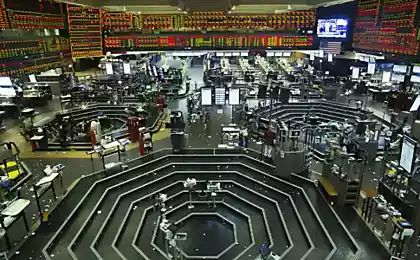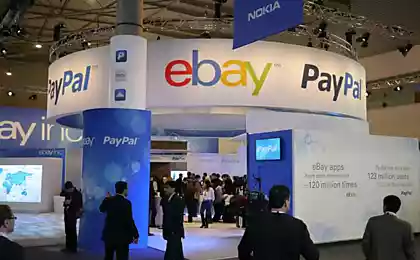1485
Why small technology companies have ceased to hold IPO
68,146,328
In the first half of 2014 reached US IPO in 30 technology companies. Sreli them were such as: Paycom Software, engaged in manufacture model SaaS (software as a service - «Software as a Service»), Castlight Health, which seeks to provide access to the software "in the cloud" and the company from the UK < a href = "http://www.forbes.com/companies/king-digital-entertainment/"> King Digital Entertainment , producing interactive games. Half of the companies of this thirty year concluded 60 transactions. This is their best result since 2007.
However, despite record levels, the number of transactions after the company's IPO is only half that of the corresponding annual average between 1980 and 2000 (116 transactions). And that is based on the actual GDP growth in more than 2 times, since 1980. So why other companies do not tend to become open?
Despite the existence of a legislative act of 2012 (Jumpstart Our Business Startups - literally Fast Start your business startups), designed to clarify some difficult moments for being on the "stage of recovery» (Emerging Growth Companies) companies widely believed that after the IPO , companies nominated by excessive requirements. As stated in the document on the "stage of recovery," the company is only when she entered the IPO is less than 5 years ago and its annual income does not exceed one million dollars.
Failure of small companies from the public offering of its shares on the Stock Exchange began in 2002 - before the Sarbanes - Oxley Act (Act tightens the requirements for financial statements and the process of its preparation). Some truth about the existence of excessive demands really are, but it is not only in the legislative part.
During 2013, only 43 technology companies came to IPO, whereas venture капиталисты sold 376 companies , for the most part such giants as CiscoSystems, Google, Microsoft, and Oracle. In other words, the most successful young companies would rather sell your business, rather than become open to private investors. This trend is observed since 2000. The median annual earnings of technical companies left on IPO, for the past year totaled $ 106 million. In 1996, because of inflation, this figure was only at the level of 25 million. From year to year, venture capitalists are preparing the company for sale, instead of withdrawing their shares at the public auction.
In the article "Because of what the company stopped going to IPO?» (" Where Have All the IPOs Gone? A > "), which I wrote together with Xiaohui Gao and Zhongyan Zhu, discusses the need for the rapid growth of the company in today's realities. Especially it concerns the technical sector. If you give a small technology company with a great new idea to grow the most, this process takes a very long time. Instead, companies are increasingly coming to the fact that the technology is more profitable to sell a larger company that can immediately integrate into its existing products. A major players in reserve the whole "army" of engineers and marketers are able to start work on a new product with no additional delays in the form of hiring new staff and brand development.
However, not all companies are eager to sell their business. For example, Facebook and Twitter came to the IPO and were independent companies, although it was only after they have grown. Some firms, regardless of their status, must remain independent in order to survive. The others are valued as part of the larger players. In the process industry's most successful step for young companies with technology that is considered the sale of their business.
Most of these sales are aimed at large organizations, and not to private investment funds. In the latter case, at the helm of the company stand up funds, but it continues to remain independent.
This year may be considered the richest in the number left on IPO companies since 2000, when the bursting of the technology bubble. Among most of these companies is listed a record number of organizations associated with biotechnology.
The previous record was set in 1996 and 2000. However, even without the related transactions in biotechnology IPO market looks impressive. Such could be observed in the period from 2004 to 2007. For more information on data available at the this page .
One word, regardless of the growth of prices on the stock exchange and the adoption of an act of Congress Jumpstart Our Business Startups (JOBS) 2.0, I do not expect a big number of young companies in the IPO, as it was in the 80s and 90s. For the majority of young technology companies is not so important to "come out" as whether there will be an independent company, or be absorbed by larger players who can quickly benefit from economies of scale and economies of scope. For the same reason WhatsApp sell your business Facebook for $ 19 million, instead of entering the IPO.
PS If you spot a typo, mistake or inaccuracy translation - write a personal message and we will promptly fix it.
posts and related links:
Statistics: why you should not buy stocks after the release of the new Apple iPhone a href="http://habrahabr.ru/company/itinvest/blog/230977/"> Chinese Internet giant Alibaba chose for IPO NYSE (NYSE) a href="http://habrahabr.ru/company/itinvest/blog/229237/"> How-to: How to buy tech stocks on the example of "Yandex» Performance: acceleration of the terminal for stock trading using undocumented features Аналитические materials ITinvest about the stock market
Source: habrahabr.ru/company/itinvest/blog/236883/
In the first half of 2014 reached US IPO in 30 technology companies. Sreli them were such as: Paycom Software, engaged in manufacture model SaaS (software as a service - «Software as a Service»), Castlight Health, which seeks to provide access to the software "in the cloud" and the company from the UK < a href = "http://www.forbes.com/companies/king-digital-entertainment/"> King Digital Entertainment , producing interactive games. Half of the companies of this thirty year concluded 60 transactions. This is their best result since 2007.
However, despite record levels, the number of transactions after the company's IPO is only half that of the corresponding annual average between 1980 and 2000 (116 transactions). And that is based on the actual GDP growth in more than 2 times, since 1980. So why other companies do not tend to become open?
Despite the existence of a legislative act of 2012 (Jumpstart Our Business Startups - literally Fast Start your business startups), designed to clarify some difficult moments for being on the "stage of recovery» (Emerging Growth Companies) companies widely believed that after the IPO , companies nominated by excessive requirements. As stated in the document on the "stage of recovery," the company is only when she entered the IPO is less than 5 years ago and its annual income does not exceed one million dollars.
Failure of small companies from the public offering of its shares on the Stock Exchange began in 2002 - before the Sarbanes - Oxley Act (Act tightens the requirements for financial statements and the process of its preparation). Some truth about the existence of excessive demands really are, but it is not only in the legislative part.
During 2013, only 43 technology companies came to IPO, whereas venture капиталисты sold 376 companies , for the most part such giants as CiscoSystems, Google, Microsoft, and Oracle. In other words, the most successful young companies would rather sell your business, rather than become open to private investors. This trend is observed since 2000. The median annual earnings of technical companies left on IPO, for the past year totaled $ 106 million. In 1996, because of inflation, this figure was only at the level of 25 million. From year to year, venture capitalists are preparing the company for sale, instead of withdrawing their shares at the public auction.
In the article "Because of what the company stopped going to IPO?» (" Where Have All the IPOs Gone? A > "), which I wrote together with Xiaohui Gao and Zhongyan Zhu, discusses the need for the rapid growth of the company in today's realities. Especially it concerns the technical sector. If you give a small technology company with a great new idea to grow the most, this process takes a very long time. Instead, companies are increasingly coming to the fact that the technology is more profitable to sell a larger company that can immediately integrate into its existing products. A major players in reserve the whole "army" of engineers and marketers are able to start work on a new product with no additional delays in the form of hiring new staff and brand development.
However, not all companies are eager to sell their business. For example, Facebook and Twitter came to the IPO and were independent companies, although it was only after they have grown. Some firms, regardless of their status, must remain independent in order to survive. The others are valued as part of the larger players. In the process industry's most successful step for young companies with technology that is considered the sale of their business.
Most of these sales are aimed at large organizations, and not to private investment funds. In the latter case, at the helm of the company stand up funds, but it continues to remain independent.
This year may be considered the richest in the number left on IPO companies since 2000, when the bursting of the technology bubble. Among most of these companies is listed a record number of organizations associated with biotechnology.
The previous record was set in 1996 and 2000. However, even without the related transactions in biotechnology IPO market looks impressive. Such could be observed in the period from 2004 to 2007. For more information on data available at the this page .
One word, regardless of the growth of prices on the stock exchange and the adoption of an act of Congress Jumpstart Our Business Startups (JOBS) 2.0, I do not expect a big number of young companies in the IPO, as it was in the 80s and 90s. For the majority of young technology companies is not so important to "come out" as whether there will be an independent company, or be absorbed by larger players who can quickly benefit from economies of scale and economies of scope. For the same reason WhatsApp sell your business Facebook for $ 19 million, instead of entering the IPO.
PS If you spot a typo, mistake or inaccuracy translation - write a personal message and we will promptly fix it.
posts and related links:
Statistics: why you should not buy stocks after the release of the new Apple iPhone a href="http://habrahabr.ru/company/itinvest/blog/230977/"> Chinese Internet giant Alibaba chose for IPO NYSE (NYSE) a href="http://habrahabr.ru/company/itinvest/blog/229237/"> How-to: How to buy tech stocks on the example of "Yandex» Performance: acceleration of the terminal for stock trading using undocumented features Аналитические materials ITinvest about the stock market
Source: habrahabr.ru/company/itinvest/blog/236883/























